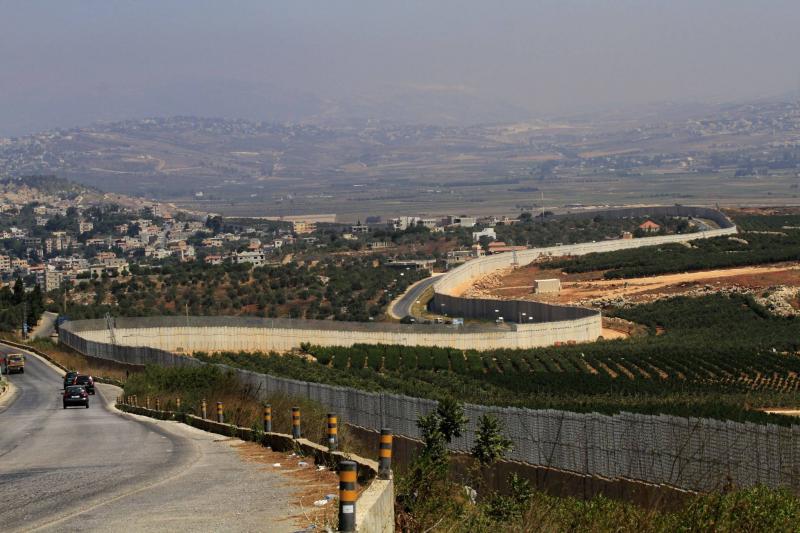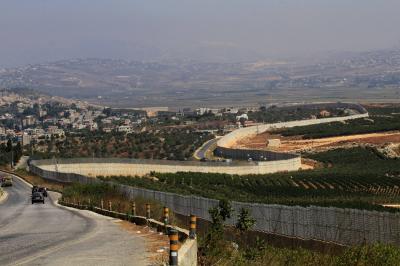The volatile situation between Israel and Hezbollah in southern Lebanon teeters on the brink of escalation, with ambiguity surrounding the caretaker government's stance on Hezbollah's insistence on linking the southern front with the Gaza front, rejecting any separation between them. This situation puts US-French efforts to calm the situation in a state of limbo, hindering the reduction of tension and opening the door to an escalation in conflict between the party and Israel along the northern front. The American mediator Amos Hochstein has refrained from moving between Beirut and Tel Aviv to create favorable political conditions for implementing Resolution 1701, while France, represented by Foreign Minister Stéphane Sizurigné, has stepped into the communications fray in hopes of restoring efforts to prevent the situation from slipping out of control.
**US-French Coordination**
"Middle East" learned from prominent political sources that Paris’s revival of the proposal it had previously submitted to ensure a minimum return to stability at the border with Israel came after the visit of French presidential envoy Jean-Yves Le Drian to Washington, where he met with the American mediator. This visit helped bridge the gap between the United States and France, leading to coordination between them in addressing the election of a President of the Republic and restoring calm on both sides of the Lebanon-Israel border.
Political sources revealed that Le Drian's visit to Washington coincided with the presence of the Director of Political Affairs at the French Foreign Ministry in the US capital, emphasizing the necessity of coordination between the two countries on matters aimed at assisting Lebanon in overcoming its accumulated crises. The American-French communication has dispelled the animosity that arose from the divergence in their approaches to the Lebanese crisis.
The sources pointed out the possibility of introducing amendments to the French proposal to restore calm in southern Lebanon but expressed concerns that it might remain merely ink on paper should Hezbollah insist on not separating the fronts in the south and Gaza. They argued that initiatives should begin with a ceasefire in Gaza. European and American diplomatic sources indicated that achieving a truce on the Gaza front is challenging, and should the Egyptian-Qatari mediation succeed in establishing one, it would not mean, from Israel's perspective, that a ceasefire in Gaza would automatically extend to southern Lebanon.
**Israel's Conditions**
The same sources confirmed that Israel insists on not linking the southern Lebanon and Gaza fronts, contrary to Hezbollah's insistence on this linkage and its refusal to reconsider its position to facilitate the French minister's mission. They stated that Israel conditions its consent on an agreement that any truce in Gaza should be immediately followed by security arrangements preventing a return to the pre-October 8 situation, when Hezbollah decided to engage in military confrontation ostensibly to support Hamas by diverting Israeli pressure off Gaza in response to Hamas's invasion of Israeli settlements near Gaza.
However, the caretaker government, the sources say, is not inclined to engage in negotiations aimed at acquiescing to Israel's demands, which aligns Prime Minister Najib Mikati with Parliament Speaker Nabih Berri, who is leading negotiations, with Hezbollah's support, on behalf of Paris and Washington to implement Resolution 1701, contingent upon a halt to the war in Gaza, even though communication has not ceased between Hezbollah and Paris through its ambassador to Lebanon, Hervé Magro.
Yet various questions remain, such as what to do if Israel does not reconsider its insistence on linking calm in the south to an agreement on various security arrangements? How will the caretaker government respond? What will Berri say in response to the Israeli conditions amid the Lebanese divide regarding Hezbollah's unilateral decision to engage in confrontation without returning to the government for consultation, given that the decision of peace and war remains within the government's jurisdiction?
**Difficult Task**
Therefore, political sources argue that a potential alternative to the security arrangements demanded by Israel for returning calm to the south could be to initiate negotiations regarding the implementation of Resolution 1701, provided that Hezbollah adjusts its position by not linking southern Lebanon with Gaza. Will Hezbollah take this step, in the absence of a safety net that offers political cover for its unilateral decision in supporting Hamas, especially since its insistence on not making a distinction implies that an expansion of the war by Israel is inevitable, as confirmed by American and French diplomatic sources? This is despite rising pressures on Tel Aviv to prevent such an expansion, against Hezbollah's inclination for self-restraint to avoid providing excuses for large-scale conflict in the south, which would be difficult to control.
Will Hezbollah conduct a comprehensive review that leads it to make the required concessions to prevent Israel from broadening the war, or does it have other calculations? In awaiting Hezbollah's position, the French minister's discussions in Beirut face a tough challenge, where he seeks to absolve himself of responsibility for avoiding war expansion, as the stabilizing return to Lebanon is of significant interest to French President Emmanuel Macron. However, he encounters a reciprocal exchange of conditions between Hezbollah and Israel, which hinders efforts to restore focus on the implementation of Resolution 1701, being the only framework for demarcating the land borders between Lebanon and Israel.




